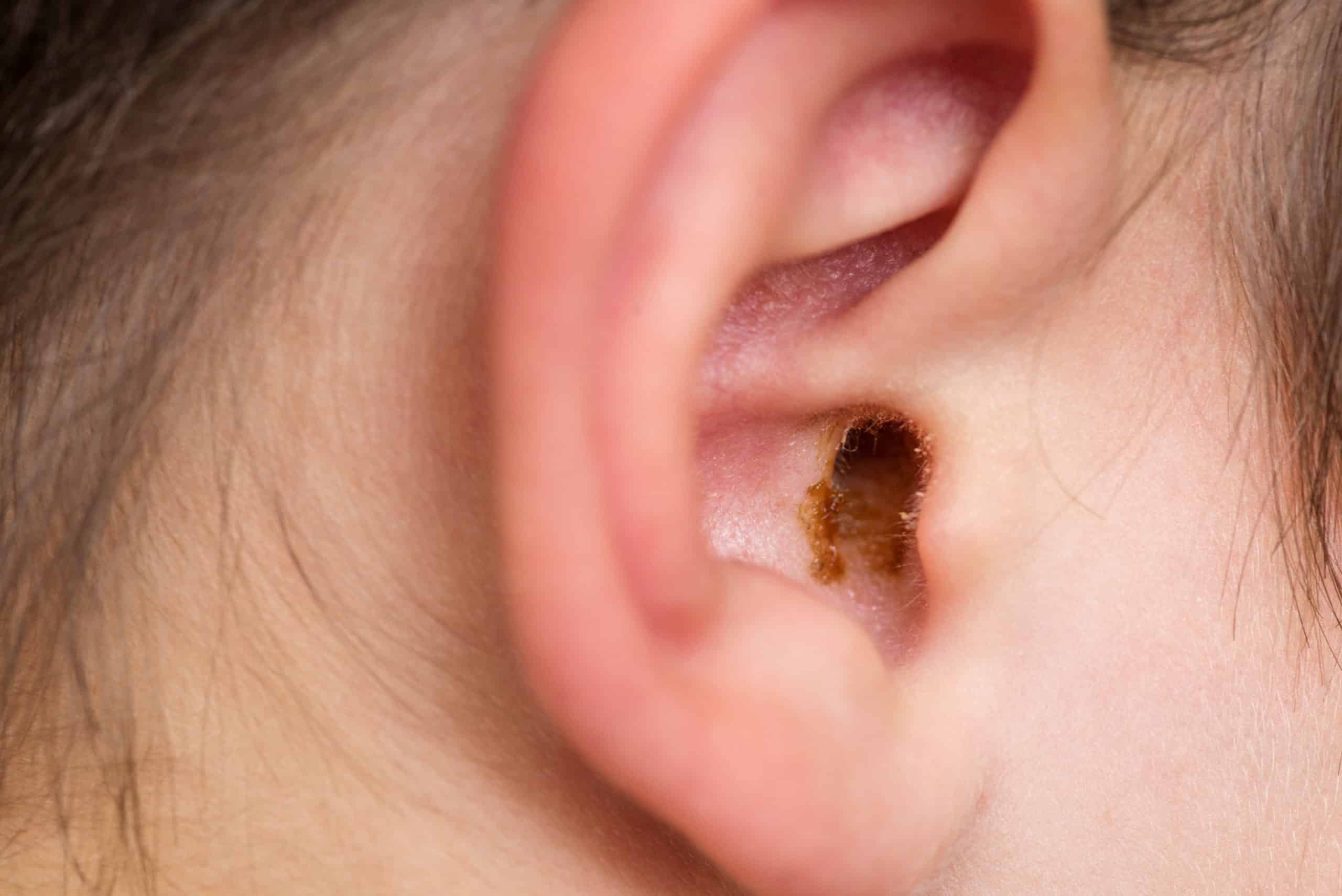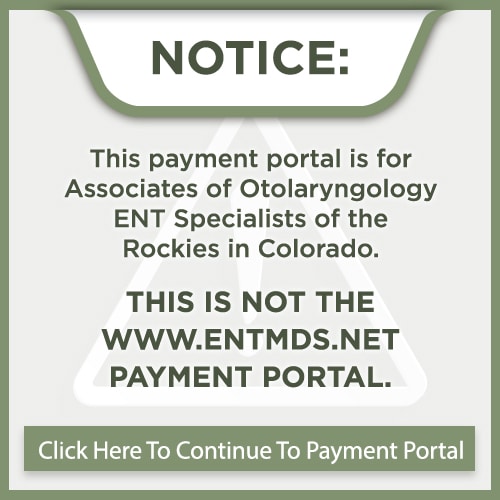What is a Perforated Eardrum?
A perforated or ruptured eardrum is a condition in which a hole forms in the sensitive, thin tissue of the eardrum. The eardrum separates the outer ear canal from the middle ear (the space behind the eardrum). A hole or tear can result in middle ear complications. Because the eardrum is responsible for transmitting sound waves into the middle ear through vibration, a punctured eardrum may not transmit as efficiently as a healthy one, resulting in hearing loss. An eardrum perforation can also result in recurrent ear infections and an increased susceptibility to infections.
Symptoms of Ruptured Eardrum
The most common symptoms of a perforated eardrum are:
- Sharp ear pain that resolves quickly
- Drainage from the ear of either mucus, pus, or blood
- Tinnitus (ringing in the ear)
- Hearing loss
- Vertigo or balance issues
What Causes a Ruptured Eardrum?
There are several potential causes for ruptured eardrums. One of the most common causes is from trauma or injury. Examples of this include penetration injury from a Q-tip, hairpin, or other foreign body. Another type of trauma is called barotrauma, or trauma related to pressure differentials. A example of this is from sudden, forceful pressure from air or water during an ear injury. The middle ear is an air-filled chamber with its own air pressure separate from the air pressure around you. When this differential pressure is severe, an immense amount of force is placed on the eardrum, which could lead to a rupture. Environments that introduce large pressure differentials altitude changes, swimming, and scuba diving. Patients who have previously had ear tubes placed are also at risk of developing a hole in the eardrum.
Middle ear infections can cause a perforated eardrum as well, as a side effect of accumulated fluids that press against the eardrum. In some cases, extremely loud sounds or explosions can cause a ruptured eardrum, especially when experienced without any hearing protection.
When to See an Otolaryngologist
You can see a doctor or otolaryngologist any time you experience symptoms like the ones associated with a ruptured eardrum. They can examine your eardrum closely to see whether it has a hole and then set you on a path for treatment for both the perforated eardrum as well as any other conditions that may also be occurring.
Diagnosing Perforated Eardrum
Diagnosis for a perforated eardrum can be as simple as a visual examination of the ear(s) in question. Your physician may use a microscope for a more detailed examination. For other symptoms, such as discharge from the ear, our doctors may order lab tests of the substance, or conduct an audiologic test to determine how well you’re hearing.
Treating Ruptured Eardrum
The good news is that many ruptured eardrums usually heal on their own, repairing themselves within a few weeks to months. During this time, however, your middle ear is more susceptible to bacteria and pathogens due to the eardrum not protecting it from the external environment.
If the eardrum doesn’t heal in a few weeks, our doctors can treat a rupture with a few methods, including applying an eardrum patch to promote healing, or perform a tympanoplasty, a surgical technique to close any hole in the eardrum. Small perforations can be repaired in the office. Perforations that are persistent, large, or are associated with infections typically require an outpatient surgery (tympanoplasty). The procedure may involve incisions placed in your ear canal or behind your ear. The eardrum may be reconstructed using synthetic material or tissue from your own ear, such as fascia (connective tissue) or cartilage.
ENTs in Denver, CO
If you’ve experienced a sudden change in hearing ability or other symptom that may be cause for concern, there’s no time like the present to get a diagnosis from an ENT in Colorado. With locations in Lone Tree, Denver, and Castle Rock, AOO/ENT specialists of the Rockies are here to help with any issue of the ear, nose, and throat. Our ENTs provide high-quality care with a full range of treatments and procedures. Don’t wait — schedule your appointment by calling us or contacting us online today.
Sources:
AOO | ENT Specialist of the Rockies is a practice that has been serving the Denver area for over 40 years. This group of board-certified physicians has exceptional experience treating multi-generational families and meeting their needs in ENT services, sleep health, sinus and allergy treatment, hearing treatment, and facial plastic surgery. Our team includes ENT physicians, specialty-trained nurses, audiologists, and plastic surgeons. In addition to outstanding routine care, our team is available 24/7 for emergencies









